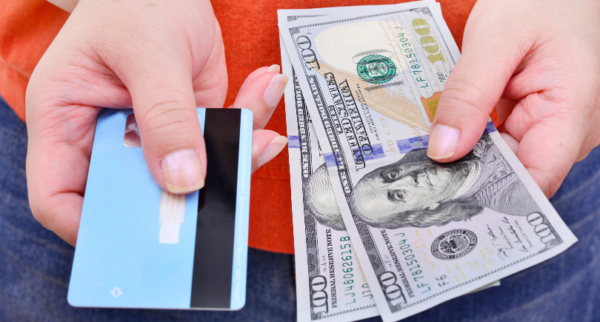Best credit cards for bad credit of February 2026
Even with bad or limited credit, getting a credit card is possible, and the right one can improve your score. CardRatings editors reveal the best cards for bad credit.
A good credit score impacts everything from credit card offers to loans and mortgages. Your score is based on your credit history, including payment history, accounts, debt, and collections. Those with poor credit may struggle to qualify for loans, apartments, jobs, or good credit card offers. Responsibly using a credit card can help build or rebuild credit. While top rewards cards may be out of reach, there are credit cards for low credit scores, some even with rewards. These include secured cards (requiring a deposit) and unsecured cards (with a spending limit). Unsecured cards for low credit often have high fees. Below are our experts’ top picks for credit cards to help build bad credit, including both secured and unsecured options.
CardRatings’ top picks for the best credit cards for bad credit
Building or rebuilding credit can be a challenge, but it’s not impossible. If you’ve been denied traditional credit cards due to a low credit score or limited credit history, secured credit cards and other credit cards for poor credit can provide a pathway to a better financial future. These cards offer a chance to demonstrate responsible credit use, which is key to improving your creditworthiness. Below, we explore some of the best credit cards designed for those looking to rebuild their credit.
Why we like it
Why not earn a little while working on rebuilding your credit? Not only does this card report to the three major credit bureaus and include your FICO credit score on your monthly statements, but this no-annual-fee card will also allow you to earn cash back on your purchases. AND, Discover will automatically match all the cash back you've earned at the end of your first year, which is a great perk for even the best rewards cards!
Why not earn a little while working on rebuilding your credit? Not only does this card report to the three major credit bureaus and include your FICO credit score on your monthly statements, but this no-annual-fee card will also allow you to earn cash back on your purchases. AND, Discover will automatically match all the cash back you've earned at the end of your first year, which is a great perk for even the best rewards cards!
- A secured card that earns rewards is rare. The fact that this secured credit card offers cash back on purchases is great.
- It's also unusual for a secured credit card to offer a welcome bonus to new cardholders. The match offer Discover offers is unique and has the potential to pay off big.
- This card doesn't charge foreign transaction fees so it's safe to travel abroad with.
- Discover will automatically review your account monthly starting at seven months to see if they can transition you to an account with no security deposit.
- No late fee on your first late payment.
- While there's no annual fee, the minimum security deposit amount could be a stretch for some people.
- Your 2% cash back earning on restaurant and gas station purchases is capped when you hit $1,000 in spending each quarter (after that, you earn 1% cash back on those purchases). Still, that’s a very minor quibble given that many secured credit cards don’t offer rewards.
Why we like it
Not only does this card come with some of the same benefits offered by some other Capital One credit cards requiring higher credit scores, but this no-annual-fee card also requires one of the lowest minimum security deposits out of all of the credit cards that we reviewed. You could qualify for an account with a deposit of just $49 (see below for details).
Not only does this card come with some of the same benefits offered by some other Capital One credit cards requiring higher credit scores, but this no-annual-fee card also requires one of the lowest minimum security deposits out of all of the credit cards that we reviewed. You could qualify for an account with a deposit of just $49 (see below for details).
- No foreign transaction fee.
- Get access to a higher credit line in as little as six months with no additional deposit needed.
- You'll want to try hard not to carry a balance as the ongoing APR rate (RegAPR) is a bit steep.
- This card doesn't offer rewards on purchases, but that's pretty standard for secured credit cards.
Why we like it
If you're working on building your credit you should try really hard to make your payments in full and on time, but sometimes life happens. What's great about this card is that it has a low ongoing APR of RegAPR, which is impressive even among cards for people with higher credit scores.
If you're working on building your credit you should try really hard to make your payments in full and on time, but sometimes life happens. What's great about this card is that it has a low ongoing APR of RegAPR, which is impressive even among cards for people with higher credit scores.
- It's always important to pay your balance in full, but especially so when you're working on building your credit score. If you have to carry revolving debt though, you're sure to appreciate the low ongoing APR this card offers.
- There is no minimum credit score required to apply for this card.
- Activate with a $200 minimum deposit, maximum $2,000.
- There is an annual fee to consider.
- The $200 minimum deposit may be difficult for some people to pay.
Why we like it
Secure your financial future and build a strong credit history with this convenient Visa® credit card. No credit check is required, making it accessible even if you're starting from scratch. Begin building credit with a security deposit as low as $100 and enjoy the flexibility of using your card anywhere Visa® is accepted within the U.S.
Secure your financial future and build a strong credit history with this convenient Visa® credit card. No credit check is required, making it accessible even if you're starting from scratch. Begin building credit with a security deposit as low as $100 and enjoy the flexibility of using your card anywhere Visa® is accepted within the U.S.
- Applying for this card won't result in a hard credit inquiry, so your credit score won't be affected.
- This card helps diversify your credit mix, as both the credit lender loan and the credit card activity are reported to the credit bureaus.
- An annual fee applies to this card.
Why we like it
Nav Prime offers a unique solution for entrepreneurs: build both personal and business credit simultaneously. With no credit check, personal guarantee, or security deposit required, this card helps break down traditional banking barriers and provides access the tools you need to grow your credit and your business.
Nav Prime offers a unique solution for entrepreneurs: build both personal and business credit simultaneously. With no credit check, personal guarantee, or security deposit required, this card helps break down traditional banking barriers and provides access the tools you need to grow your credit and your business.
- Nav Prime provides a unique view of both personal and business credit data, empowering you to make informed financial decisions.
- Nav Prime advertises increased lending opportunities, saying Nav Prime members are nearly twice as likely to be approved for lending through Nav, increasing your access to capital.
- Accessing the Nav Prime Card requires an active Nav Prime membership, an approved Nav Business Checking account, and a linked bank account for repayment.
- The Nav Prime Card is currently unavailable in North Dakota, South Dakota, and Nevada.
Why we like it
This card is specifically designed for people looking to rebuild their credit and even offers the oppotunity to see whether you pre-qualify without a full credit check. Furthermore, it's an unsecured card so there's no need to come up with a large chunk of money in order to establish your line of credit.
This card is specifically designed for people looking to rebuild their credit and even offers the oppotunity to see whether you pre-qualify without a full credit check. Furthermore, it's an unsecured card so there's no need to come up with a large chunk of money in order to establish your line of credit.
- A card that earns rewards while helping you build credit after a bankruptcy is a rarity.
- Don't overlook the lack of security deposit. Most cards for people in the poor/rebuilding credit tier require a security deposit to establish your line of credit.
- The APR is fairly steep, so you'll want to avoid carrying a balance.
- Don't use this card to shop online in a foreign currency or when you travel abroad since it charges foreign transaction fees.
Compare credit cards for bad credit by perks and features
Want to see how our picks for the best credit cards for bad credit stack up against each other? Our comparison tool makes it easy to compare up to threetwo cards at a time. Simply select the cards you’re interested in and we’ll automatically display their key perks and features side-by-side. With a quick glance, you can easily identify the card that best suits your needs and preferences.
Select up to 23 cards to compare side-by-side:
VS
Ask CardRatings’ experts
Our CardFinder tool is also a great way to find the right card for you!
Tired of searching for the right credit card? CardFinder makes it quick and easy. Simply tell us your preferences and we’ll do the heavy lifting. Our three-step process saves you time and effort, so you can spend less time searching and more time enjoying the rewards. Get started today!
Frequently asked questions about credit cards for bad credit
Can I get a credit card with bad credit?
Yes, it’s possible to get a credit card with bad credit, though your options may be limited. While some issuers hesitate to extend credit to those with past financial difficulties like missed payments or bankruptcy, others recognize that everyone deserves a second chance. Secured credit cards are often the most accessible option for rebuilding credit, but a few unsecured cards are also available for those with lower scores.
What types of credit cards are available for bad credit?
How to choose a credit card for bad credit
Choosing a credit card for bad or no credit is different than choosing a rewards card. Instead of focusing on perks and bonuses, you’ll need to consider factors like security deposits, annual fees, credit limits, and APRs. While some cards offer minor rewards, the primary goal is to rebuild your credit. Think of it as a stepping stone: smart choices now can pave the way for better cards and financial opportunities later. Improving your credit score is a reward in itself, and it’s the key to unlocking more exciting credit card benefits down the road.
Can a credit card help rebuild bad credit?
Yes, a credit card can be a powerful tool for rebuilding bad credit. Responsible use—making on-time payments and keeping your balance low—demonstrates positive credit behavior and can help improve your credit score over time.
How long does it take to rebuild credit using a credit card?
Rebuilding credit with a credit card isn’t a race; it’s a marathon. While you might see some improvement within a few months of responsible use, truly significant progress often takes a year or more of consistent, positive credit behavior. Think long-term, not instant gratification.
Will applying for a credit card for bad credit hurt my score?
Applying for a credit card, even one for bad credit, can cause a minor, temporary dip in your score. It’s like a ripple in a pond. However, some lenders offer a sneak peek—a pre-qualification process—that lets you gauge your chances without making a splash in your credit report.
What is the best credit card for poor credit?
What is the easiest credit card to get with no credit score?
Can I qualify for a rewards credit card with bad credit?
How long does it take to move from bad credit to fair credit?
Meet the editorial team
Rating methodology: CardRatings’ experts review the fine print, details, perks, rewards and features of hundreds of cards and compare them side-by-side with similar cards. A card that makes an excellent balance transfer card may not make a great cash-back rewards card, even though it offers those rewards. While the Best of the Year list is announced annually, that list—and all other “best of” lists on CardRatings—are regularly reviewed by CardRatings’ editors and updated as necessary, as issuers frequently change the terms and features of each card. Card issuers cannot pay or influence the cards on these lists, or the order that cards appear.
For Capital One products listed on this page, some of the benefits may be provided by Visa® or Mastercard® and may vary by product. See the respective Guide to Benefits for details, as terms and exclusions apply.
The information in this article is believed to be accurate as of the date it was written. Please keep in mind that credit card offers change frequently. Therefore, we cannot guarantee the accuracy of the information in this article. Reasonable efforts are made to maintain accurate information. See the online credit card application for full terms and conditions on offers and rewards. Please verify all terms and conditions of any credit card prior to applying.
This content is not provided by any company mentioned in this article. Any opinions, analyses, reviews or recommendations expressed here are those of the author’s alone, and have not been reviewed, approved or otherwise endorsed by any such company. CardRatings.com does not review every company or every offer available on the market.







